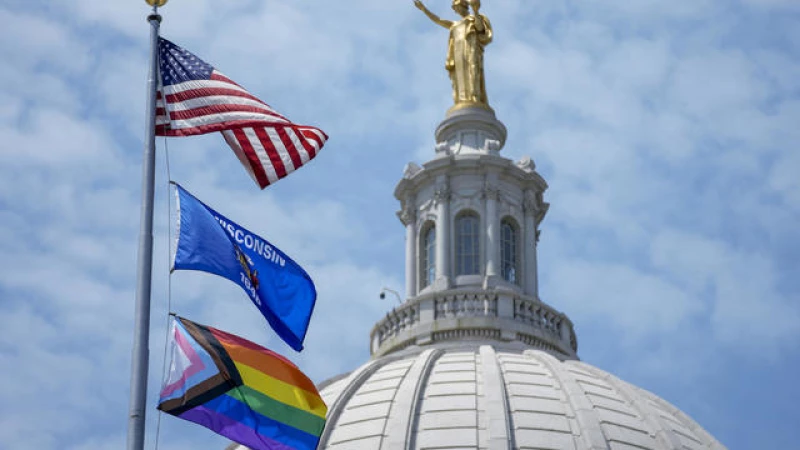Wisconsin's governor vetoed a bill on Tuesday that proposed banning high school transgender athletes from participating in teams that correspond with their gender identity, pledging to veto any legislation that would diminish the safety, inclusivity, and welcoming nature of LGBTQ individuals and youth.
The bill had been approved by the Republican-controlled Legislature despite Evers' earlier declaration that he would veto it as soon as it was introduced. While the Democrats lacked the votes to prevent its passage in the Legislature, the Republicans now find themselves without the necessary votes to override the veto.
In his veto message, Evers stated that such laws "negatively impact the mental well-being of LGBTQ Wisconsinites and youth, fuel anti-LGBTQ harassment, bullying, and violence, and jeopardize the security and dignity of LGBTQ individuals, particularly LGBTQ youth."
Evers vetoed the bill at the Capitol in the presence of Democratic lawmakers, transgender advocates, the mayor of Madison, and other supporters.
Republican Representative Barb Dittrich, the bill's sponsor, condemned Evers' veto as "appalling" and accused him of maintaining a "misogynistic and hateful stance towards biological females."
"His veto today unequivocally reveals his lack of regard for women and girls, as well as his failure to safeguard their hard-earned accomplishments," Dittrich expressed in a statement.
The legislation put forward aimed to restrict high school athletes to participating on teams that align with the gender they were assigned at birth.
Supporters of the bill, predominantly Republicans, argued that it was a matter of fairness for non-transgender athletes. However, opponents of the bill contended that there was no significant issue with transgender high school athletes in Wisconsin. They further stated that the proposed restriction was a form of discrimination and could be detrimental to transgender youth.
The Wisconsin Interscholastic Athletic Association mandates that transgender athletes must undergo hormone therapy before being allowed to participate on the teams corresponding to their gender identity. This policy is based on the NCAA guidelines for transgender athletes.
Approximately 20 states have passed variations of a sweeping prohibition on transgender athletes competing in K-12 and college sports teams across the state. However, a Biden administration initiative to block such blanket bans is expected to be finalized this year following several delays and substantial opposition. The proposed regulation would assert that these bans violate Title IX, the groundbreaking gender equality law enacted in 1972.
Minnesota, the neighboring state, has taken significant steps to become a sanctuary for LGBTQ+ youth. One of the key measures includes the passing of a bill that prohibits conversion therapy, a harmful practice that aims to change a person's sexual orientation or gender identity. In addition, lawmakers in Minnesota have also approved legislation with the goal of establishing the state as a safe haven for transgender individuals. This legislation is designed to safeguard transgender patients and providers of gender-affirming care from facing legal repercussions in states where such care is either prohibited or restricted. Ultimately, these efforts aim to create a protective environment for LGBTQ+ individuals in Minnesota.







